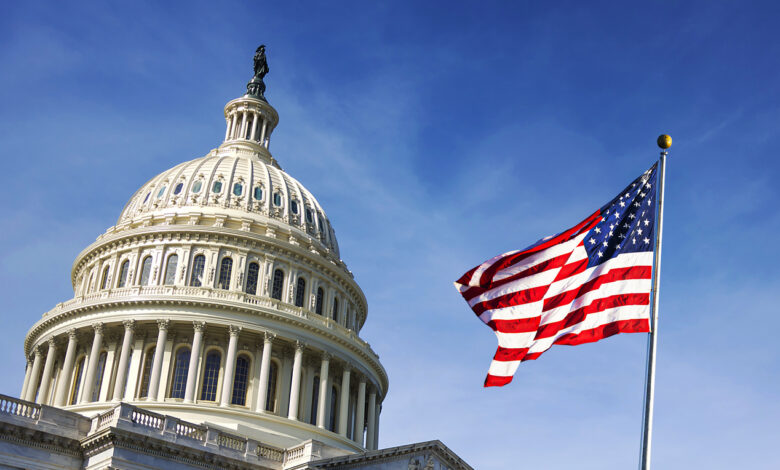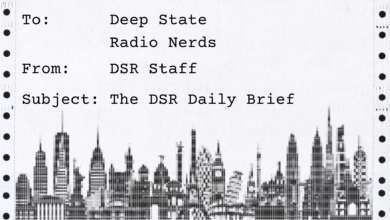Was January 6th a Mere Prelude to Much Worse to Come?

David Remnick, editor of the New Yorker, who in my view is one of a handful of American journalists who lead the way for the profession, has an article this week entitled “Is Civil War Ahead.” I won’t recap it here. It has the benefit of a premise that is well communicated by the title. But I encourage you to read it. Of all the analyses I have seen mounted in and around January 6th, it is perhaps the best…and the most usefully forward-looking.
The future it describes is one that is fraught with peril of deepening divisions in our society. This is not, of course, alarmism. We have always been a fractured society. From the North-South divide that marked the first century of our existence to, well, the North-South divide that has marked everything since, we have seen the costs of cultural differences, strong countervailing self-interests and worse, old prejudices and hatreds. In our own era, we have seen deepening economic divides for the past 40 years. The residue of the market-centric, anti-government policies of Reaganism and the modern conservative movement, is seen in the skyrocketing costs of penthouses and estates and the deepening plight of the homeless and the disenfranchised in inner cities.
Rather than seeing these divisions as a threat to our society (largely the position of the Democratic Party), Trumpists and the “new right” have seized upon them as an opportunity. They have used them to go from past incarnations of social and political splits to, via the magic of creating separate information ecosystems, alternative universes with different sets of facts, different views of reality. This is a trick, of course, of demagogues throughout history, to control the distribution of the truth (revisit ‘1984’ for a refresher on this…or Hannah Arendt’s writings…or the history of Europe in the 1930s). And it is often a prelude to one group seizing power because of the threat they associate with the other group.
Throughout my adult life I viewed the threats of deeper civil division in the US or the rise of demagogues and autocrats as the stuff of history or international affairs courses. Those things happened in the past but could not happen—even with all our flaws—in the US. Why not? Because we all realized that we had something special here in our democracy, something generations had fought to create and improve and preserve. We would never throw that away.
But as Remnick accurately points out—and he is far from alone in this—civil breakdown and the end of democracy in the US is no longer unthinkable. In fact, it is a real, palpable, imminent threat. And ignoring it carries with it the same kinds of consequences ignoring the climate crisis did, the same as ignoring a doctor’s warning of a worsening, potential fatal illness might for each of us.
Yesterday, on January 6th, I posed three questions on Twitter. Now, I will be the first to admit that my Twitter followers and Twitter generally do not represent an accurate picture of the public at large. Further, such polling is totally unscientific. Those who answer are a self-chosen group and, by virtue of the fact that they want to connect with a community associated with me, obviously a progressive Democrat, they may share a common set of views. (Although the daily dose of trollery I have to deal with might suggest otherwise.)
Anyway, here are the results:
- I asked if people believe there was a “realistic chance that democracy as we have known it will fail or be significantly diminished in the United States in the decade ahead.” In just under a day, slightly over 1300 people voted. 92 percent said yes.
- I asked if people believed “the greatest threat to democracy in the United States is the Republican Party in its current form, led by Donald Trump and the far right.” Just over 1000 people responded. 97.3 percent said yes.
- I asked if they had “confidence that the Democratic Party establishment will respond forcefully and effectively enough to the threats we face to democracy to defend and preserve it.” Almost 1300 people answered. 7 percent said no.
As I said, these results are crude at best. But the answers are unambiguous. For all intents and purposes the entire group sees the country at risk, understands where the threat is coming from and does not have faith in the one major organized political force that stands in the way of that threat to meet the challenges our system will face.
The results are as chilling as Remnick’s article, as were the images we saw of the Capitol insurrection last year and as have been the signs that ever since that event the momentum of the Trumpist anti-democracy movement has grown.
On Deep State Radio we often talk about the biggest global threats we face. But there is no doubt that, aside from the climate crisis, there is no source of peril out there for the United States that can compare to the anti-democracy, ethno-nationalist movement that is gaining strength here at home.
To understand how that has worked to date, I strongly recommend you listen to the latest Deep State Radio episodewith historian Joanne Freeman and former US attorney Barb McQuade. It casts 1/6 in a different light, not as an isolated incident but as part of an on-going, complex, systematic effort to attack our institutions. It is a vital perspective because only by understanding both the severity of the threat we face and the way it is manifesting itself can we counteract it.
How do we do that? 2022 will present many opportunities. One is to pass voting rights legislation. That will require some filibuster reform. It is a test we will face almost immediately. Another is to hold those responsible for the attacks on our system—not just on 1/6 but at the state and federal level in many forms—accountable. Yet another, perhaps the most important, is to ensure that the anti-democracy movement does not win a majority in the House or Senate in November. Because we have seen how they work and that when they gain power their principal mission is not to serve the people but to work to preserve and expand that power.
Each of these are not just opportunities. They are tests. Fail them and the worst scenarios, like those described by Remnick, await us. Not in the distant future. But soon, guaranteeing that future generations and nations worldwide will never again have the confidence in the resilience or virtues of our system upon which we have have felt, until now, that we could always count on.

